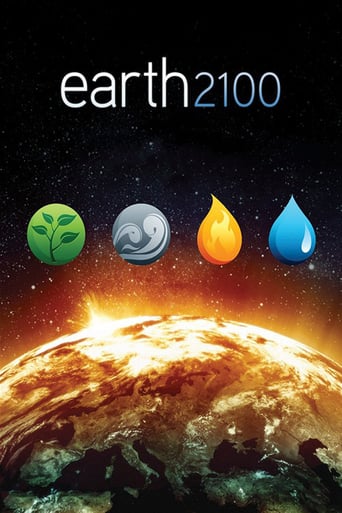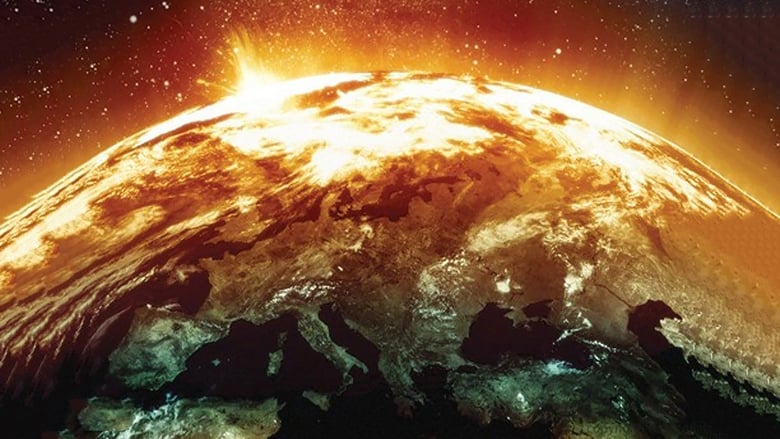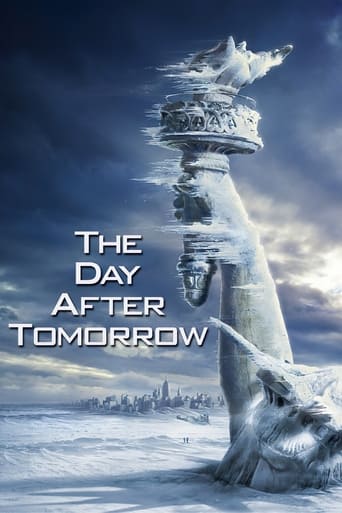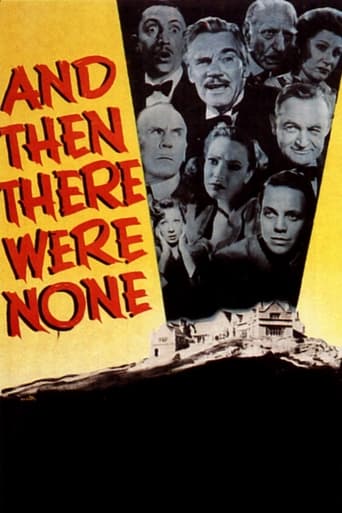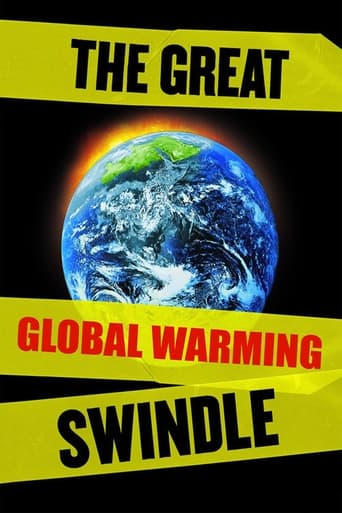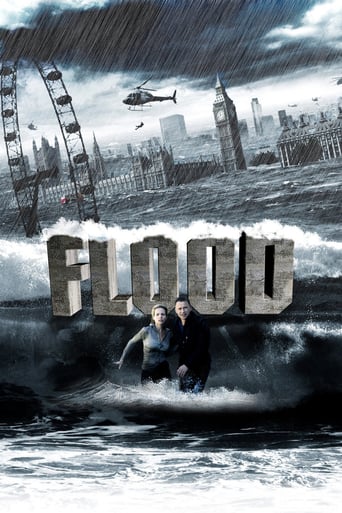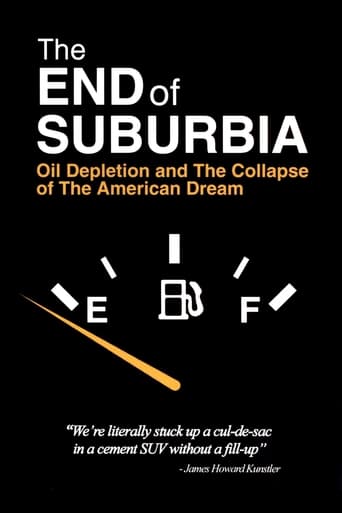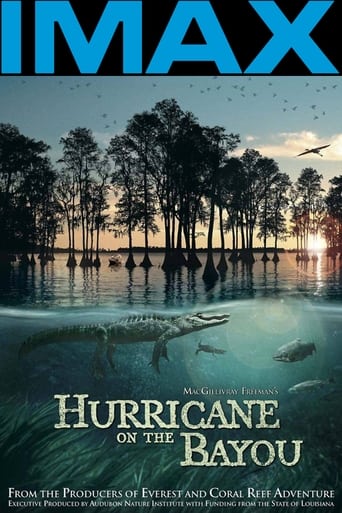Earth 2100 (2009)
Experts say over the next hundred years the "perfect storm" of population growth, resource depletion and climate change could converge with catastrophic results. The scenarios in Earth 2100 are not a prediction of what will happen but rather a warning about what might happen.
Watch Trailer
Free Trial Channels
Cast


Similar titles
Reviews
A brilliant film that helped define a genre
if their story seems completely bonkers, almost like a feverish work of fiction, you ain't heard nothing yet.
The storyline feels a little thin and moth-eaten in parts but this sequel is plenty of fun.
The movie is made so realistic it has a lot of that WoW feeling at the right moments and never tooo over the top. the suspense is done so well and the emotion is felt. Very well put together with the music and all.
First and foremost: The "apocalypse" shown in the movie is crazy one. The climate change may be very bad for people, yes, but historically it was mostly beneficial for the environment. The current "cold age" is abnormally cold, historically it was way way warmer, there was basically no ice on the poles, there was actually even polar forest! What is real problem is overpopulation, globalization (the transport of food around the world is really stupid), ecosystem destruction not short of genocide, production of toxic garbage and other waste. Please stop crying about flooded cities and the end of the civilization. You know, this has happened multiple times in the past and the impact was not that bad. The ruined cities were reused, especially in the Middle East. The oldest cities there have been "recycled" for thousands of years. And they will be recycled in the future as well.The climate change is not the end of the world nor the nature. It is very unpleasant change for most people. But have no doubts that preventing the climate change would save us from overpopulation or new illnesses. It will not. If your city is in the path of destruction it is just simple to move the city than to try to change the nature. So deal with it and focus on more important issues like stopping the globalization that is the actual devil here - it is really outsourcing of the ecosystem destruction. Riding your bike will really not prevent China from apocalyptic destruction of forests in Africa and South America.
If you loved Al Gore's movie you will love this one too. Same propaganda, same doomsday scare. The planet will go down the tubes unless we turn over our money and control of our lives to a socialist government before 2015. If we wait longer than that we are all doomed. The film is so one sided it's actually humorous. It also, typically, blames the United States for all that occurs. Even the failure of Social Security and bad flu seasons are blamed on global warming. If you add a touch of Mad Max to the Day After tomorrow, you start to get the idea.Leni Riefenstahl would have been proud to have produced this film.
Global warming, flooding, droughts, natural disasters, diseases, over-population, refugees, peak oil, resource wars, why not throw all of these things together centered around a single character and then conclude the movie by saying that we need to create a green and environmental future?This film does not establish a clear relation between each of these problems, it just jumps from one from issue to another, and it can be quite confusing along the way. Besides that, things are centered far too much on America and the life of this fictional character: Lucy. I don't think they mention Africa, South America, The Middle East, or Australia, much or at all. They talk about China and India a little: apparently they declared a resource war against one another, however, they don't go into it that much after that.In addition to this, there have been oil shortages in the world before. See {The Power of Community: How Cuba Survived Peak Oil (2006)}. People would import lots of bicycles as the price of gasoline for cars goes up, they would start growing their own food as the price of food goes up, and so on. People wouldn't be senselessly driving in their cars to get super-expensive gas as is implied here. They over-dramatize every issue to a 'worst case scenario', especially the issue of peak oil.How exactly did the population go to 9 billion and then down to 2.7 billion and where exactly were these population changes distributed? In order to support a larger population, such as one that has 9 billion people, you would undoubtedly need advances in agriculture and architecture, so that bigger buildings can be created and so that more food can be produced. Besides that there are things which are limiting factors to the expanse of the population, such as the birth control programs in China and AIDS in Africa.Moving on, was there any good reason that those sea-barriers had to fail? I think they would have made all sorts of precautions to assure that they would work correctly, and they would predict the event before hand so that they could drop the sea-barriers without resistance. Furthermore, if they wanted to construct a modern green city, they most certainly wouldn't do it around New York, when New York is immediately threatened by the floods and diseases. Instead, they would most certainly create the city around Siberia or Canada, because in this future those areas would become warmer and more habitable, so they would make for an ideal place to create a "beacon of hope" for this post-apocalyptic society.One thing that was really disturbing is the communications breakdown, and the idea that the scientific breakthroughs could be lost. One of the people interviewed for this show said "if it is some electronic based thing it could all be lost" considering modern storage capacities, you can store so much data that there is little threat to the ability to successfully store it. Sure a nuclear apocalypse, or a massive raise in the Earth's sea-levels could seriously threaten life and civilization as we know it, however, I do not think it poses much of any threat to digital data or our communications systems.We could easily store all of our scientific breakthroughs/literature/videos/software on a couple of hard-drives and put them in spacecrafts/satellites that would be completely impervious to all Earthly matters, in addition to this these spacecrafts could send radio waves down to Earth. This could form the basis of a communication system used to reconstruct human society after such an apocalyptic event as the one this film depicts.In conclusion, this movie recommends that people change their habits immediately in order to go green, to get solar panels, and wind power. These are things we have probably already heard many times before so this ending segment probably won't be interesting to most people. They actually pose no real solutions to most of the issues presented in this film: natural disasters, over-population, peak oil etc.
When I first came across this title the rating was still well above 7. The more people votes, the lower it gets. Now, why is that, I wonder. But really, I think I already know the reason. And not to offend anyone, but respectfully, do you all actually must be so predictable. I mean, I'm sitting here and now, writing this comment, and I KNOW the reaction of most of you - 'Oh, yet another far-fetched, apocalyptic, designed to scare us (the question rises here - scare into what? going green?) production. One of the oh-so-many that have been made in the recent years. But I still live the way I used to, nothing changes, I'm good.'Good for you, then... for now at least. I believe there is a reason for such productions to proliferate like that - this problem IS real. And it IS, not MIGHT BE some day.I shouldn't really get so criticizing and I apologize for that. But I believe it might add to the point I'm trying to make. Because after watching this documentary I can't say that there is a single flaw in its technical, cinematographic design that could explain this plummeting ranking. The film has everything a documentary needs: the issue, the vast background, the science, the prognoses, the hypotheses and conclusions that follow. It EVEN has a well-written narrative, thus a plot. It finally has the message and what a message it is. But how is met with? Well you all see the ranking. If it isn't the form that fails it has to be the content. So prejudice drives most of the people who watch it, prejudice towards this seemingly hackneyed topic. I cannot expect everybody to be as moved as I was after watching Earth 2100. However I beg of you, when you visit here to vote, please consider this one thing - sure you can vote 3 for redundancy or triteness (which aren't even the case in this production, since it's quite a unique attempt at a documentary) or you can actually help the cause by encouraging others to watch this film with your positive, or at least adequate vote. After all, and let us be frank here, all of us 'imdbcomers' know that hardly anything below 7 is worth investing our time in. And it's definitely not the case with Earth 2100.The bottom line here being - don't dismiss a good piece of movie- making just because the subject annoys you personally. Because there might others who would actually need or could use an inspiration (and motivation), which this documentary may well provide.8 out of 10, but it's me being objective. Personally, it's a 'tenner' for me - the actual gem among the rock.

